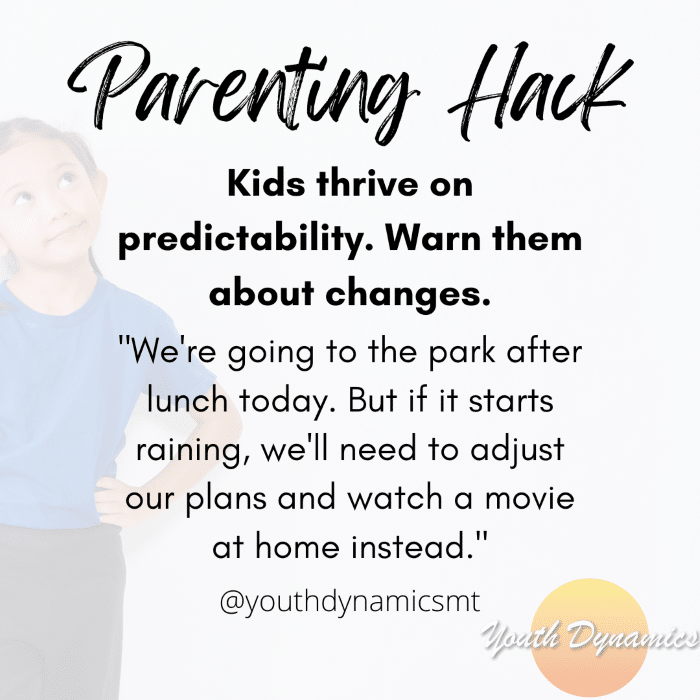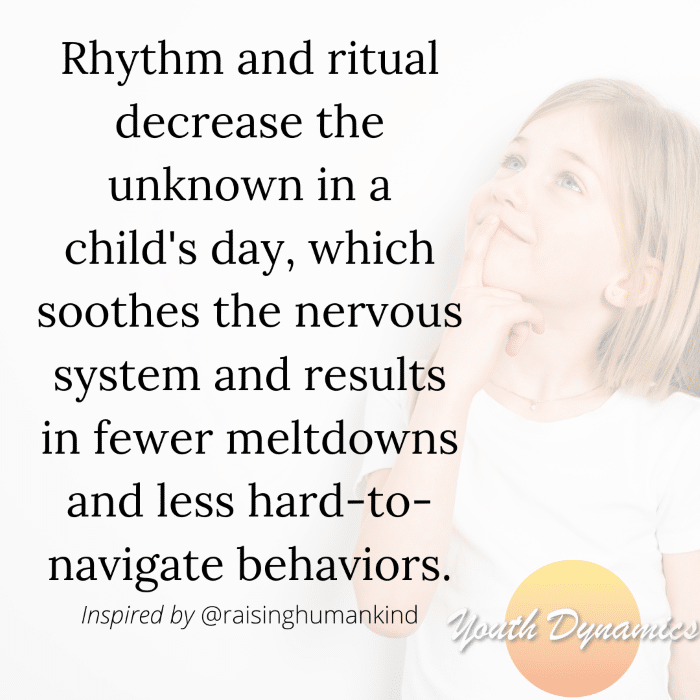Life can be a roller coaster, full of unexpected twists and turns. And for our little ones, these sudden shifts can be overwhelming. That’s where the magic of structure and predictability comes in.
Giving kids a roadmap of their day, complete with signposts of what’s next, gives them a sense of control and safety—even amidst life’s unpredictable whirlwinds.
How Structure & Predictability Help Kids Thrive
Structure and predictability are the building blocks for our little ones. Below are how they support healthy development, with examples and tips for embracing them.
Reducing Stress Through Predictability
Unexpected changes introduce uncertainty in our children’s world—inducing stress. Knowing what’s coming next via routine or frontloading gives them a sense of control, which can significantly reduce anxious feelings.
Being prepared for what’s next makes transitions smoother and less challenging. For example, if a child knows that after dinner, it’s time for a bath, then a bedtime story, they’re less likely to feel stressed or apprehensive about those activities.
Check out the parenting hack from our Instagram feed, @youthdynamicsmt, below for another example:

Creating a Sense of Safety & Security
Our little ones thrive in an environment where they feel safe and secure. Predictable routines make their world less chaotic, creating a blanket of comfort and security around them.
For instance, knowing that every morning starts with breakfast, followed by school or playtime, gives kids a sense of control over their world. This familiarity of routine reassures them, providing a sense of safety they can rely on daily.
Promoting Positive Behavior with Structure
Structure is an essential tool for promoting positive behavior. Children must understand what’s expected of them to follow through on expectations.
For example, when a child knows they must tidy up their toys after playtime before moving on to another activity, they’re less likely to resist the transition and follow through with that expectation.

Consistent expectations make learning and being on our best behavior easier.
Fostering Independence Through Routine
Routine isn’t just about maintaining order in a child’s day. It’s also about teaching them skills that foster independence and confidence. When kids know what to expect, they can begin to anticipate and prepare for activities independently.
For example, if your child knows it’s time to brush their teeth every morning after breakfast, eventually, they’ll start heading to the bathroom even without being told.
Over time, following routines independently helps build self-reliance, problem-solving skills, and a sense of self-confidence.
Want more?
Check out the rest of our blog and follow us on social media. You can find us on LinkedIn at Youth Dynamics of Montana, Instagram @youthdynamicsmt, and Facebook at Youth Dynamics of Montana & People of Youth Dynamics.






